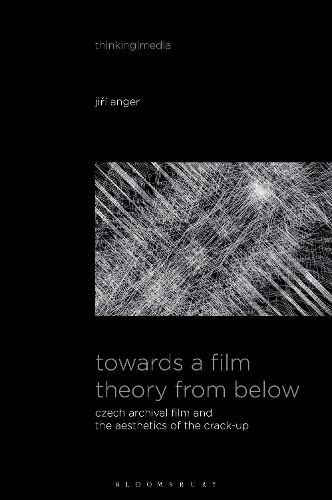
Towards a Film Theory from Below: Archival Film and the Aesthetics of the Crack-Up
(Hardback)
Available Formats
Publishing Details
Towards a Film Theory from Below: Archival Film and the Aesthetics of the Crack-Up
By (Author) Jiri Anger
Bloomsbury Publishing USA
Bloomsbury Publishing USA
27th June 2024
United States
Classifications
Professional and Scholarly
Non Fiction
Media studies: internet, digital media and society
Impact of science and technology on society
791.4301
Physical Properties
Hardback
232
Width 142mm, Height 216mm, Spine 20mm
400g
Description
Operating between film theory, media philosophy, archival practice, and audiovisual research, Jir Anger focuses on the relationship between figuration and materiality in early films, experimental found footage cinema, and video essays. Would it be possible to do film theory from below, through the perspective of moving-image objects, of their multifarious details and facets, however marginal, unintentional, or aleatory they might be Could we treat scratches, stains, and shakes in archival footage as speculatively and aesthetically generative features Do these material actors have the capacity to create weird shapes within the figurative image that decenter, distort, and transform the existing conceptual and methodological frameworks Building on his theoretical as well as practical experience with the recently digitized corpus of the first Czech films, created by Jan Kreneck between 1898 and 1911, the author demonstrates how technological defects and accidents in archival films shape their aesthetic function and our understanding of the materiality of film in the digital age. The specific clashes between the figurative and material spheres are understood through the concept of a crack-up. This term, developed by Francis Scott Fitzgerald and theoretically reimagined by Gilles Deleuze, allows us to capture the convoluted relationship between figuration and materiality as inherent to the medium of film, containing negativity and productivity, difference and simultaneity, contingency and fate, at the same time, even within the tiniest cinematic units.
Author Bio
Jir Anger is a British Academy Postdoctoral Fellow at Queen Mary University of London, UK. He also works at the National Film Archive in Prague, Czech Republic, as a researcher and editor of the peer-reviewed academic journal Iluminace. His specialization lies in the theory and history of early cinema, archival film, found footage, and videographic criticism. Anger is the author of two monographs, two edited volumes, and numerous journal articles (NECSUS, Film-Philosophy, Quarterly Review of Film and Video, etc.).
